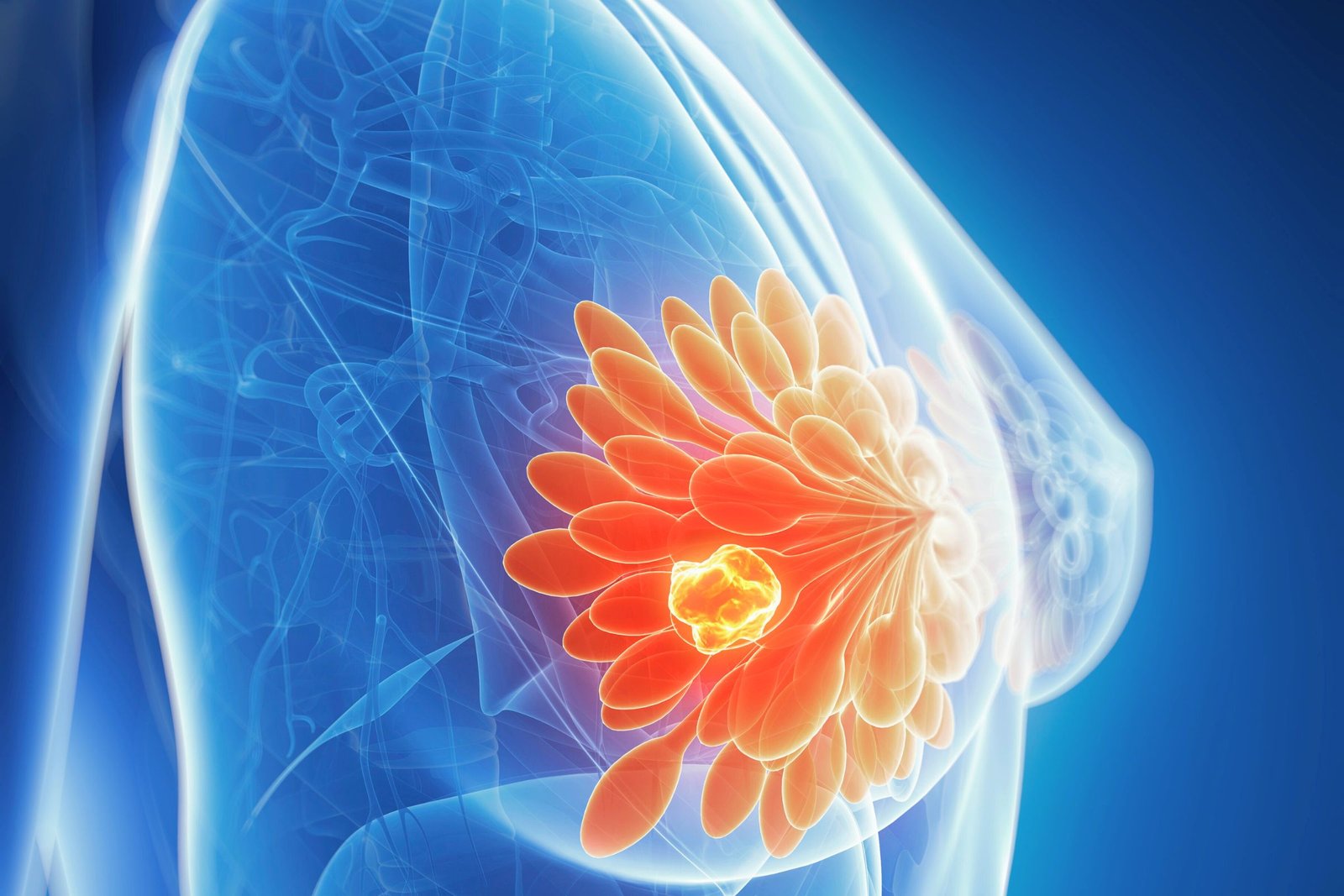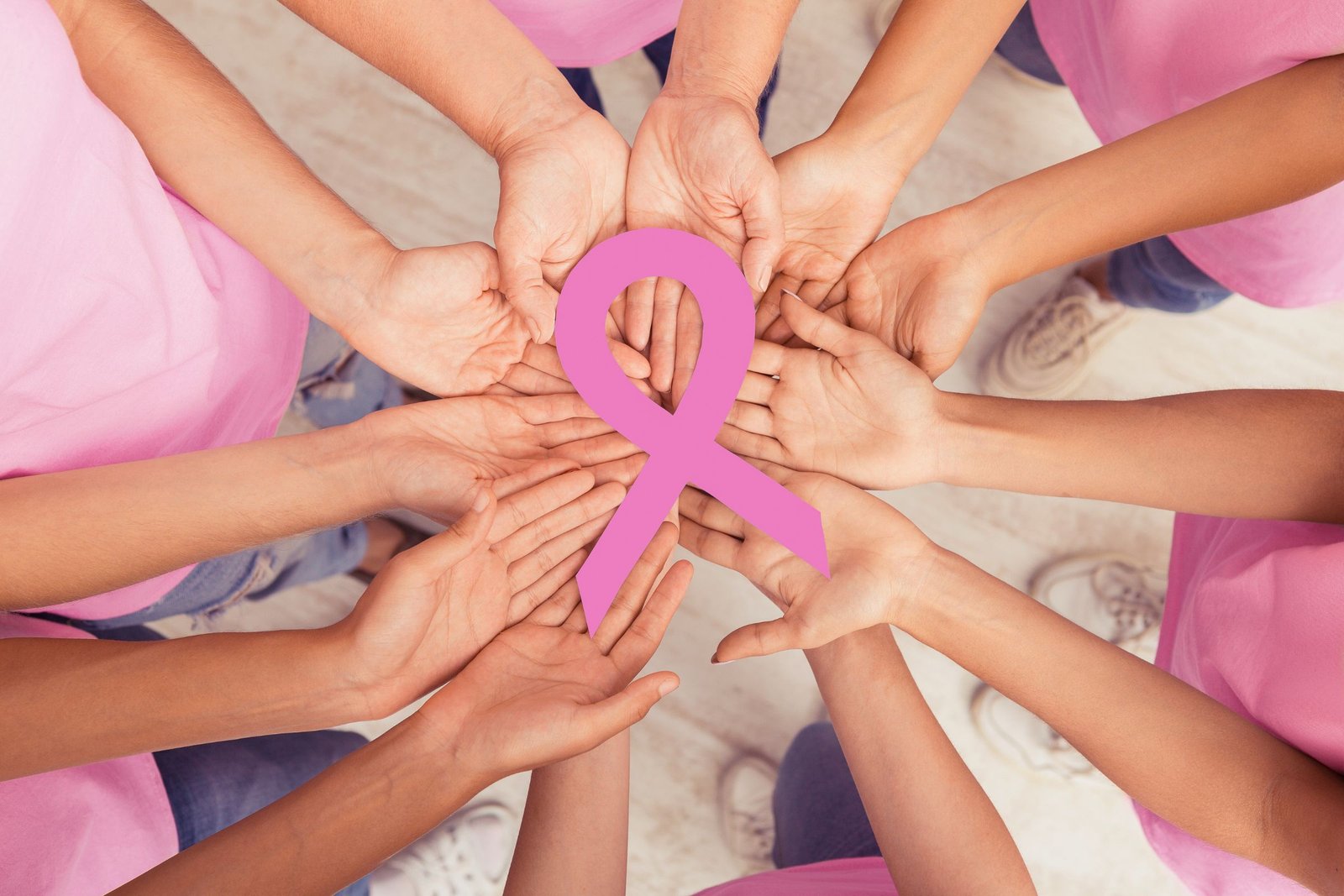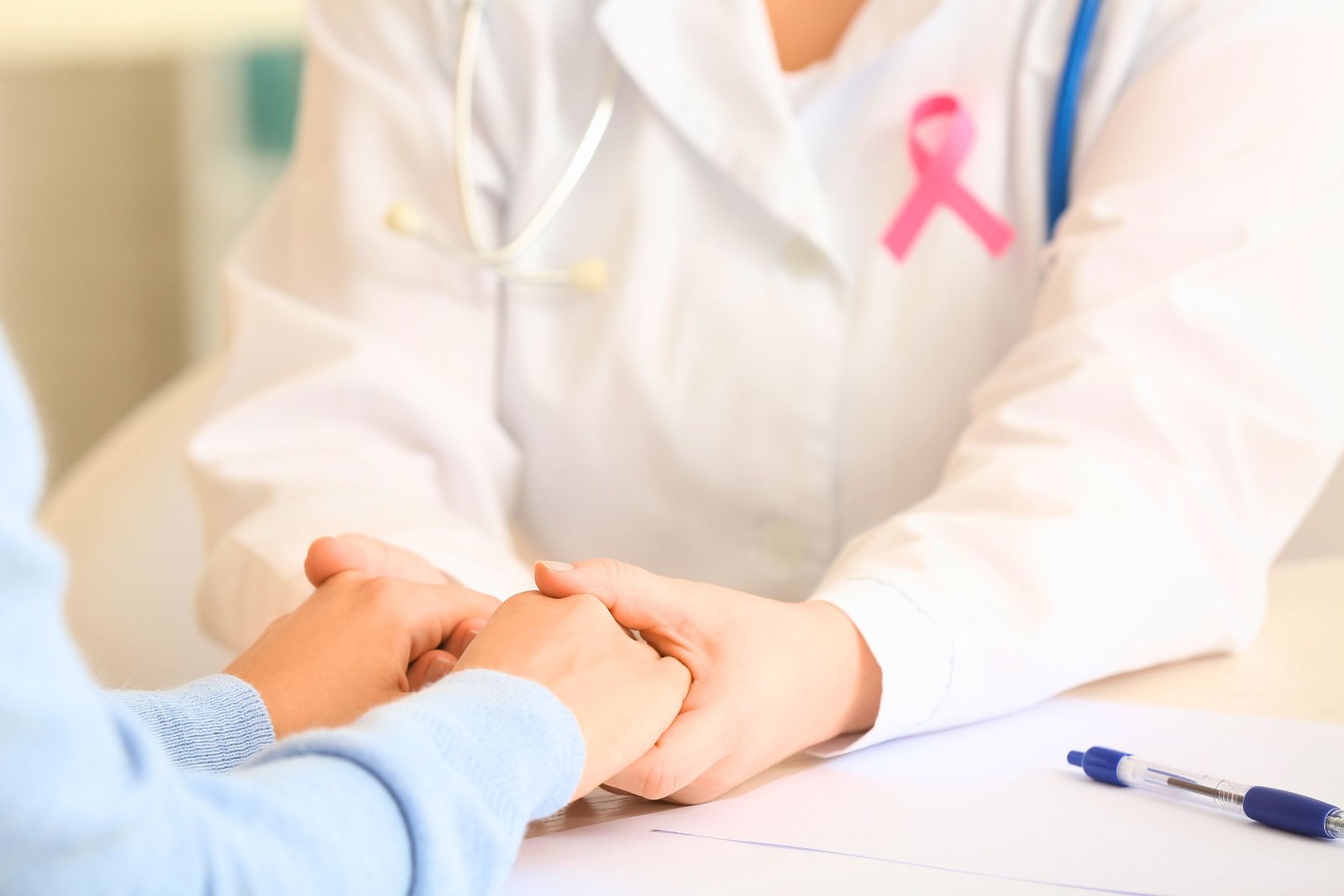A Comprehensive Guide to Understanding, Preventing, and Conquering Breast Cancer
In a world where health takes precedence, awareness becomes the linchpin in the ongoing battle against breast cancer. Affecting millions globally, breast cancer is more than a medical condition; it’s a shared concern that requires collective understanding and action. This comprehensive guide endeavors to illuminate the intricate facets of breast cancer, from its origins within the body’s cells to the advanced detection methods, varied treatment options, and essential tips for prevention. By exploring these aspects, we aim to empower readers with knowledge that serves as a beacon, guiding them through the labyrinth of breast cancer with confidence and resilience.
What is Breast Cancer?

Breast cancer, a complex and multifaceted disease, arises from the uncontrolled growth of cells in the breast tissue. It is not a singular entity but encompasses various types, each with distinct characteristics and behaviors. The prevalence of breast cancer worldwide underscores the urgency of understanding its nuances.
Types of Breast Cancer
The most common form, invasive ductal carcinoma, originates in the milk ducts and infiltrates surrounding tissues. Invasive lobular carcinoma begins in the milk-producing glands, while specific subtypes like triple-negative and HER2-positive breast cancer require targeted approaches.
Risk Factors
Understanding risk factors aids in early identification. Genetic predispositions, family history, hormonal influences, age, and gender contribute to susceptibility, while lifestyle choices can either mitigate or exacerbate these risks.
Early Warning Signs
Vigilance for early warning signs is paramount. Detectable changes in breast size, the presence of lumps, alterations in nipple appearance, skin changes, or persistent pain should prompt immediate medical attention.
The Importance of Early Detection
Early detection significantly improves prognosis and treatment outcomes. Regular screenings, self-examinations, and clinical evaluations are essential components of early detection efforts. Breast Cancer Awareness Month serves as a reminder to prioritize routine checkups.
Preventive Measures
Empowering individuals to adopt preventive measures is pivotal. Breast health education, embracing a healthy lifestyle, breastfeeding, limiting alcohol consumption, and maintaining a healthy weight collectively contribute to reducing the risk of breast cancer.
Detection Methods

Early detection serves as a linchpin in the battle against breast cancer, often making the difference between successful treatment and more challenging outcomes. Understanding the array of detection methods available empowers individuals to take proactive steps in monitoring their breast health.
Regular Screenings
Mammography, an X-ray imaging technique specifically designed for breast tissue, is a cornerstone of regular screenings. Routine checkups, adhering to recommended screening guidelines based on age and risk factors, enable healthcare professionals to detect abnormalities before symptoms manifest.
Breast Self-Exams
Empowering individuals with the knowledge and skills to conduct regular breast self-exams is crucial. These simple, at-home examinations enable individuals to familiarize themselves with their breast tissue, making it easier to identify changes such as lumps, skin abnormalities, or nipple changes.
Clinical Breast Examinations
Regular clinical breast examinations conducted by healthcare professionals provide a hands-on approach to detecting abnormalities. These examinations supplement screenings and self-exams, offering a comprehensive evaluation of breast health.
Advanced Imaging Techniques
In cases where additional scrutiny is warranted, advanced imaging techniques such as breast MRI or ultrasound may be recommended. These technologies offer a more detailed view, aiding in the identification of abnormalities in dense breast tissue or for individuals at higher risk.
Genetic Testing
For individuals with a family history of breast cancer or known genetic predispositions, genetic testing can provide valuable insights. Identifying mutations in genes like BRCA1 or BRCA2 enables personalized risk assessment and tailored screening plans.
Understanding and embracing these detection methods contribute significantly to the early identification of breast cancer. Early detection not only enhances treatment outcomes but also provides individuals with a sense of agency in managing their health. By integrating regular screenings, self-exams, and clinical examinations into a comprehensive breast health routine, individuals can actively participate in the fight against breast cancer.
Treatment Options

Once a diagnosis of breast cancer is confirmed, the journey toward effective treatment begins. The approach to treatment is highly individualized, taking into account the specific type and stage of breast cancer. A multi-faceted arsenal of treatments exists, each playing a distinct role in combating this formidable disease.
Surgery
Surgery is a common and often primary treatment for breast cancer. Depending on the extent of the disease, options include lumpectomy (removal of the tumor and surrounding tissue) or mastectomy (removal of the entire breast). Breast reconstruction surgery may be considered to restore the breast’s appearance and shape.
Chemotherapy
Chemotherapy involves the use of drugs to target and destroy cancer cells. It may be administered before surgery (neoadjuvant) to shrink tumors, or after surgery (adjuvant) to eliminate any remaining cancer cells. While effective, chemotherapy can have side effects, and advances in personalized treatments aim to minimize these impacts.
Radiation Therapy
Radiation therapy utilizes high-energy beams to destroy or damage cancer cells. It is often employed post-surgery to target residual cancer cells and reduce the risk of recurrence. Advanced techniques such as internal radiation or targeted therapies focus on specific areas, minimizing damage to surrounding healthy tissue.
Hormone Therapy
Hormone therapy is particularly effective for hormone receptor-positive breast cancers, which rely on hormones like estrogen and progesterone for growth. This treatment aims to block or lower hormone levels, impeding cancer cell growth. It is commonly used in conjunction with other therapies.
Immunotherapy
Immunotherapy harnesses the body’s immune system to identify and destroy cancer cells. While not yet a standard breast cancer treatment, ongoing research explores its potential, especially for aggressive or metastatic cases.
Targeted Therapies
Targeted therapies focus on specific molecules involved in cancer growth. For example, HER2-targeted therapies are effective for HER2-positive breast cancers. Precision medicine tailors treatment based on genetic, molecular, and cellular characteristics of the cancer.
Navigating the array of treatment options requires a collaborative approach involving healthcare professionals, patients, and support networks. Treatment decisions consider not only medical factors but also individual preferences and overall well-being. This comprehensive approach to breast cancer treatment reflects the ongoing advancements in medical science, offering hope and personalized care for those facing this challenging diagnosis.
Essential Tips for Prevention

Prevention stands as a formidable ally in the fight against breast cancer. While certain risk factors are beyond one’s control, adopting a proactive and health-conscious lifestyle can significantly reduce the likelihood of developing breast cancer. Here are essential tips for prevention:
Healthy Lifestyle Choices
Maintaining a healthy lifestyle is fundamental. This includes avoiding tobacco and limiting alcohol consumption, as both are linked to an increased risk of breast cancer. Adopting a holistic approach to well-being promotes overall health and resilience.
Balanced Diet
A balanced diet rich in fruits, vegetables, whole grains, and lean proteins provides essential nutrients that support the body’s immune system and cellular functions. Antioxidant-rich foods help combat oxidative stress, a factor linked to cancer development.
Regular Exercise
Engaging in regular physical activity is crucial. Exercise not only helps maintain a healthy weight but also contributes to overall well-being. Aim for at least 150 minutes of moderate-intensity exercise or 75 minutes of vigorous-intensity exercise per week.
Breastfeeding
For mothers, breastfeeding offers health benefits for both the baby and the mother. It has been associated with a reduced risk of breast cancer, and the longer the duration of breastfeeding, the greater the protective effect.
Limit Hormone Replacement Therapy (HRT)
For postmenopausal women, the use of hormone replacement therapy (HRT) to manage symptoms should be approached with caution. Prolonged use of certain hormones has been linked to an increased risk of breast cancer.
Maintain a Healthy Weight
Maintaining a healthy weight is pivotal. Obesity is associated with an elevated risk of breast cancer, particularly after menopause. Adopting a balanced diet and staying physically active contribute to weight management.
Routine Checkups and Screenings
Regular health checkups, including breast cancer screenings as per recommended guidelines, play a crucial role in early detection. By identifying abnormalities at their earliest stages, individuals can access timely and effective treatment.
By incorporating these essential tips into daily life, individuals can actively participate in reducing the risk of developing breast cancer. A proactive and health-conscious approach, coupled with routine checkups, empowers individuals to take control of their well-being and contribute to the prevention of this prevalent disease.
Empowering Through Knowledge

In the battle against breast cancer, knowledge emerges as a powerful weapon, capable of transforming fear into resilience and uncertainty into informed decision-making. Empowering individuals through awareness and education not only promotes early detection but also fosters a culture of well-being that extends globally.
Breast Cancer Awareness Initiatives
Prominent breast cancer awareness initiatives, often symbolized by the pink ribbon, have played a pivotal role in bringing the issue to the forefront. Engaging communities through campaigns, events, and educational programs heightens awareness and encourages proactive health measures.
Education and Outreach Programs
Education is a cornerstone in the fight against breast cancer. Community outreach programs, workshops, and public health initiatives provide accessible information about risk factors, detection methods, and available resources, ensuring that knowledge becomes a tool for prevention.
Global Collaboration and Research
Advancements in breast cancer research and treatment are often the result of global collaboration. By sharing knowledge and research findings internationally, the medical community can accelerate progress towards more effective therapies and ultimately, a cure.
Support Networks and Survivor Stories
Support networks and survivor stories play a crucial role in empowering individuals facing breast cancer. Connecting with others who have walked a similar path provides emotional support, practical insights, and a sense of empowerment through shared experiences.
Access to Information and Resources
Ensuring equal access to accurate and up-to-date information is paramount. Empowering individuals with the knowledge to navigate healthcare systems, access resources, and make informed decisions about their care contributes to healthcare equality.
Early Detection Campaigns
Campaigns emphasizing the importance of early detection serve as rallying cries for action. Encouraging individuals to know their normal, stay vigilant for changes, and adhere to regular screenings reinforces the message that timely interventions save lives.
By emphasizing knowledge as a form of empowerment, we create a global culture where individuals are equipped to take charge of their health. Breast cancer becomes not just a medical challenge but an arena where informed choices, community support, and ongoing research converge to make a lasting impact.
Conclusion

As we conclude this comprehensive guide to understanding, preventing, and conquering breast cancer, it’s imperative to reflect on the collective strength that knowledge, awareness, and proactive measures bring to the forefront of this ongoing battle.
Hope in Knowledge
Knowledge is not merely a shield against fear; it is a beacon of hope. Armed with information about the complexities of breast cancer, its detection methods, treatment options, and preventative measures, individuals can navigate their health journey with a sense of empowerment and optimism.
Community Resilience
Breast cancer is a challenge that extends beyond individual experiences. It is a collective battle that communities worldwide face together. Through shared awareness, support for survivors, and a commitment to early detection, we build a resilient global community united against this formidable foe.
Continued Advocacy
Advocacy remains crucial in the fight against breast cancer. By consistently raising awareness, advocating for healthcare equality, and championing early detection, individuals become active participants in the larger movement to eradicate breast cancer from the global health landscape.
Gratitude to Survivors and Caregivers
A heartfelt acknowledgment goes to the survivors who inspire with their resilience and the caregivers who provide unwavering support. Their stories embody the strength found in unity, emphasizing the importance of a compassionate and understanding community.
Ongoing Commitment to Research
The journey to conquer breast cancer persists through ongoing research and advancements in medicine. Every breakthrough brings us one step closer to a future where breast cancer is not just treatable but preventable, and ultimately, curable.
In closing, let us carry forward the knowledge gained from this guide as a torch of empowerment. By understanding breast cancer, embracing prevention strategies, supporting one another, and advocating for continued research, we collectively contribute to a world where breast cancer no longer casts a shadow of fear. May our commitment to health, awareness, and unity illuminate the path toward a future free from the burdens of this disease.








